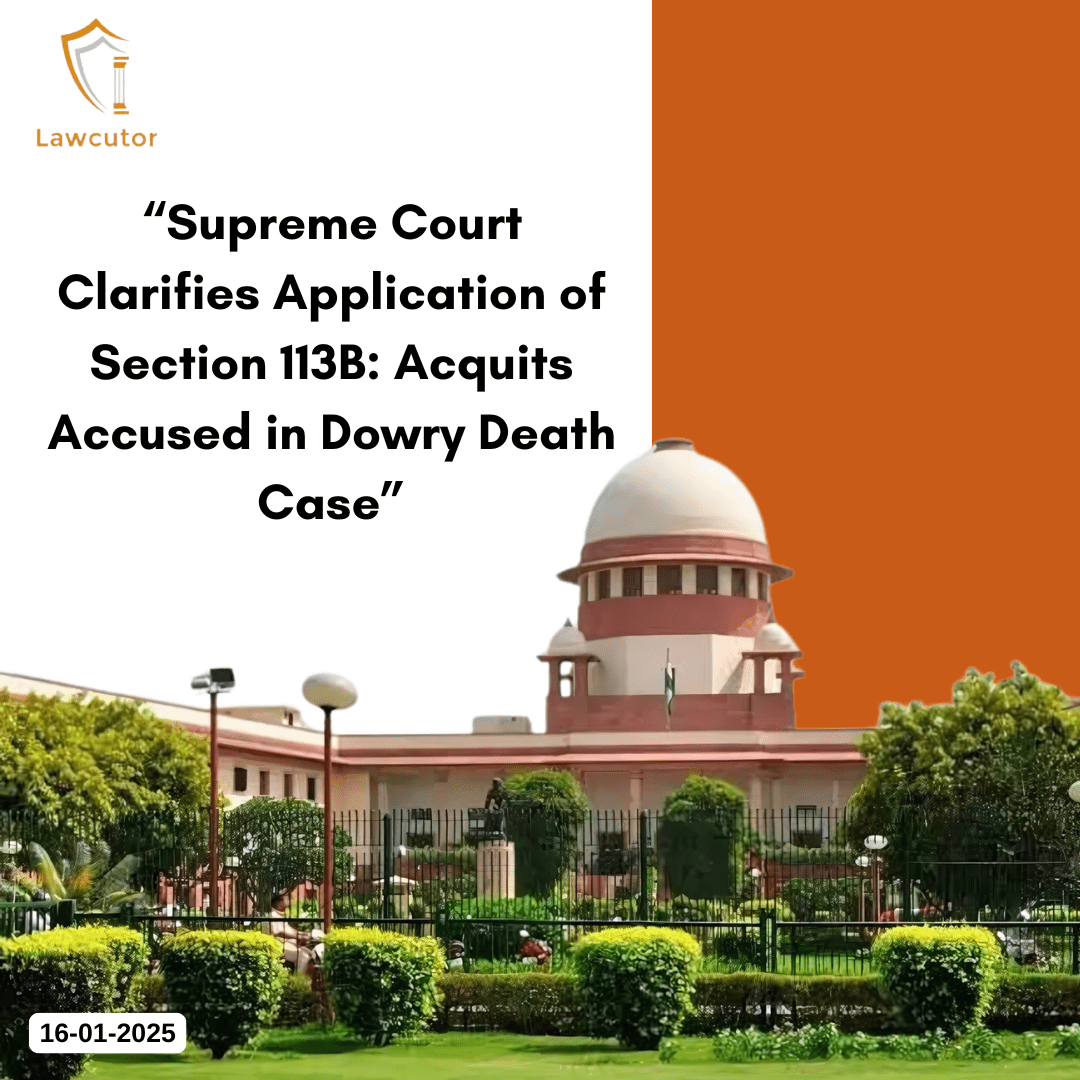
The Supreme Court, on January 9, acquitted an accused of charges under cruelty and abetment of suicide, emphasizing that Section 113B of the Indian Evidence Act (Presumption as to dowry death) requires clear and compelling evidence of persistent harassment for its application. The Court clarified that in the absence of such evidence, the provision cannot be invoked automatically.
Section 113B of the Indian Evidence Act states:
“When the question is whether a person has committed the dowry death of a woman, and it is shown that soon before her death such woman was subjected to cruelty or harassment by such person in connection with any demand for dowry, the Court shall presume that such person caused the dowry death.”
In this case, the appellant, the deceased woman’s brother-in-law, was accused of participating in harassment along with the husband and in-laws.
The prosecution claimed that the harassment led the woman to douse herself in kerosene and set herself ablaze.
The Trial Court convicted the appellant under Sections 306 (Abetment of suicide), 498-A (Cruelty by husband or his relatives), and provisions of the Dowry Prohibition Act. The High Court upheld the conviction, prompting the present appeal.
A Bench comprising Justices J.B.Pardiwala and R. Mahadevan noted a lack of substantial evidence to prove the appellant’s involvement in abetting the suicide. The Court distinguished between Section 113A (Presumption as to abetment of suicide by a married woman) and Section 113B, highlighting the critical difference:
“Under Section 113B, the Court may presume, unlike Section 113A, where the statute mandates that the Court shall presume. This distinction is crucial when raising a presumption regarding abetment of suicide. For Section 113B to apply, there must first be credible evidence of sustained harassment.Without such evidence, the Court cannot invoke Section 113B to presume abetment of suicide.”
In light of these finding, the court overturned the lower court order and allowed the appeal
Case Name: Ram Pyare vs. State of Uttar Pradesh
Case Citation: Criminal Appeal No. 1408 OF 2015







